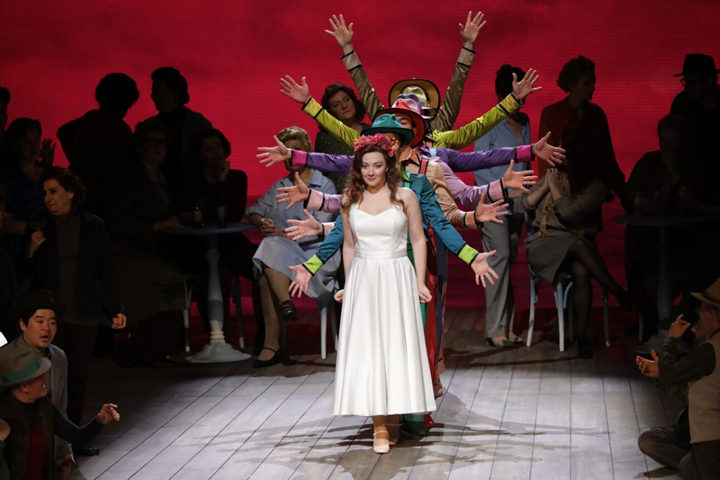| Opera Reviews | 30 April 2024 |
La rondine is enthusiastically received after a long absence at La Scalaby Silvia Luraghi |
|
Puccini: La rondine |
|
 |
|
|
Giacomo Puccini’s relatively neglected opera La rondine has never fared well at La Scala, where it has been staged only twice, in 1940, more than two decades after its 1917 world premiere in Monte Carlo, and then over half a century later in 1994, under the baton of Gianandrea Gavazzeni. The current production comes after three more decades; on the occasion of the centenary of Puccini’s death La rondine is being staged by several Italian companies and Riccardo Chailly, a Puccini specialist, finally brought it back to Milan as well. For this important occasion, the company featured a new production, directed by Irina Brook. As is well known, there has been debate regarding the very nature of Puccini’s work, whether it qualifies as a ‘real’ opera or as an operetta, as it was originally supposed to be. Puccini himself called it ‘piccola opera’, a little opera, and his correspondence reflects an uneasy attitude towards the piece that had been commissioned originally for a Vienna audience. In any case, it was clear for the composer that even if 'little', La rondine had to be an opera, as he refused to insert spoken dialogue. In Brook’s concept, La rondine’s genre is further reinterpreted as a quasi musical, and in order to highlight what she sees as the real character of the piece, with the help of set designer Patrick Kinmonth and choreographer Paul Pui Wo Lee, Brook stages the action as theater-within-theater, on a stage where a (quite useless) mute character moved around, at times giving directions, at other times embodying Magda’s double and, in the third act, simply standing to the side in her underwear. At the very end, the light setting leaves space for a stage exit, with Magda leaving the stage, according to Brook ‘to start a new life of freedom.’ The vocal cast had its tops in the female section, with soprano Mariangela Sicilia giving life to an excellent Magda, showcasing a richly colored and nicely timbred voice, changing between a flirtatious and a thoughtful attitude as needed. Soprano Rosalia Cid, a sexy Lisette, was also very compelling vocally and proved a very committed actress as well. Tenor Matteo Lippi as Ruggero sang very well, but his theatrical interpretation was somewhat disengaged, while baritone William Allione as Périchaud displayed a well-tuned and well supported voice. The highlight of the performance was the second act quartet ‘Bevo al tuo fresco sorriso’, which earned long applause after the short intervention of the chorus, which, prepared by chorus master Alberto Malazzi, also gave an outstanding contribution to the final success. Maestro Riccardo Chailly chose the 2023 critical edition, based on the original autographed score. His careful reading of the partitura highlighted the multifaceted nature of the orchestration, with a perfect mix between the pit and the stage. I was at the second performance, which enjoyed a well-deserved success with enthusiastic applause at the end.
|
|
| Text ©
Silvia Luraghi Photo Brescia e Amisano © Teatro alla Scala |
|







